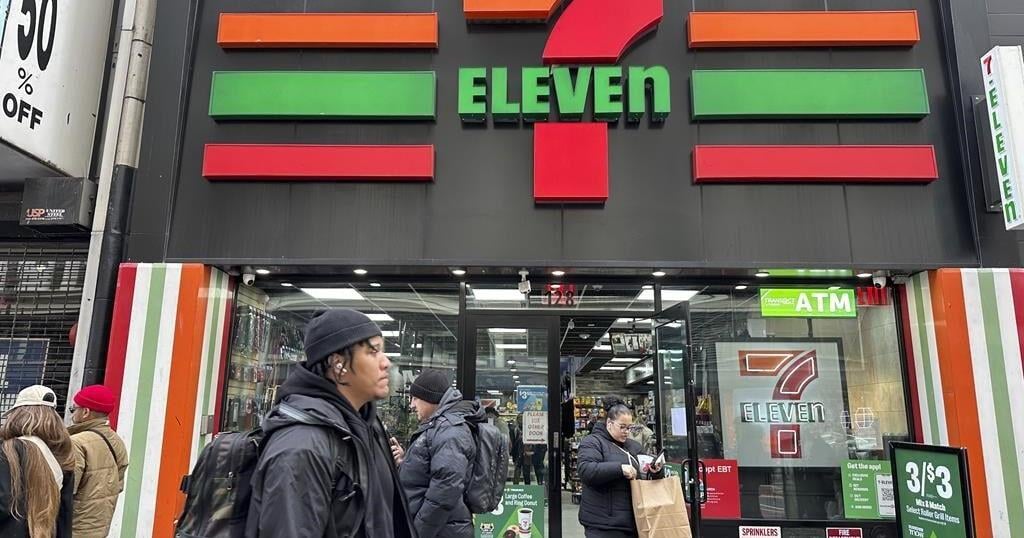TORONTO – Hundreds of Taylor Swift fans lined up outside the gates of Toronto’s Rogers Centre Wednesday, with hopes of snagging some of the pop star’s merchandise on the eve of the first of her six sold-out shows in the city.
Swift is slated to perform at the venue from Thursday to Saturday, and the following week from Nov. 21 to Nov. 23, with concert merchandise available for sale on some non-show days.
Swifties were all smiles as they left the merch shop, their arms full of sweaters and posters bearing pictures of the star and her Eras Tour logo.
Among them was Zoe Haronitis, 22, who said she waited in line for about two hours to get $300 worth of merchandise, including some apparel for her friends.
Haronitis endured the autumn cold and the hefty price tag even though she hasn’t secured a concert ticket. She said she’s hunting down a resale ticket and plans to spend up to $600.
“I haven’t really budgeted anything,” Haronitis said. “I don’t care how much money I spent. That was kind of my mindset.”
The megastar’s merchandise costs up to $115 for a sweater, and $30 for tote bags and other accessories.
Rachel Renwick, 28, also waited a couple of hours in line for merchandise, but only spent about $70 after learning that a coveted blue sweater and a crewneck had been snatched up by other eager fans before she got to the shop. She had been prepared to spend much more, she said.
“The two prized items sold out. I think a lot more damage would have been done,” Renwick said, adding she’s still determined to buy a sweater at a later date.
Renwick estimated she’s spent about $500 in total on “all-things Eras Tour,” including her concert outfit and merchandise.
The long queue for Swift merch is just a snapshot of what the city will see in the coming days. It’s estimated that up to 500,000 visitors from outside Toronto will be in town during the concert period.
Tens of thousands more are also expected to attend Taylgate’24, an unofficial Swiftie fan event scheduled to be held at the nearby Metro Toronto Convention Centre.
Meanwhile, Destination Toronto has said it anticipates the economic impact of the Eras Tour could grow to $282 million as the money continues to circulate.
But for fans like Haronitis, the experience in Toronto comes down to the Swiftie community. Knowing that Swift is going to be in the city for six shows and seeing hundreds gather just for merchandise is “awesome,” she said.
Even though Haronitis hasn’t officially bought her ticket yet, she said she’s excited to see the megastar.
“It’s literally incredible.”
This report by The Canadian Press was first published Nov. 13, 2024.


























